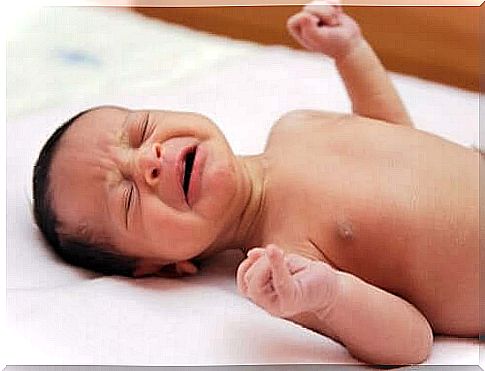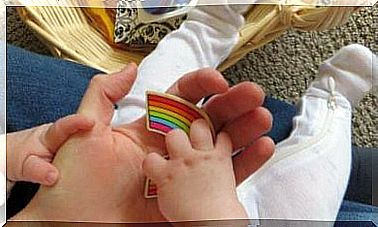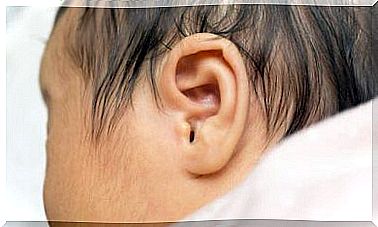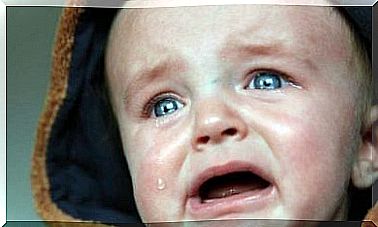Torticollis In Newborns: How To Intervene?

A stiff neck is already a painful condition and you may have suffered from it, especially after spending a night’s sleep in an uncomfortable position. But even babies can suffer from a stiff neck.
Stiff neck in newborns usually occurs in babies who have experienced a difficult birth, or is due to an inadequate position of the uterus. This condition is known as congenital muscular torticollis or infantile torticollis.
Most babies do not experience any pain with a stiff neck, but they may have a twisted head position or have difficulty twisting their necks.
Fortunately, with some simple exercises and / or with adequate changes in position, the little one will improve over time. But in order to help a newborn with a stiff neck, the first thing to do is to understand what this condition consists of when babies are so young.

What is a stiff neck?
Torticollis “or collotorto” is a condition in which a baby or child has their head tilted to one side and their chin tilted in the opposite direction due to the pain they feel (they cannot position their head in a normal position). It is called “congenital torticollis” if the baby is born with this condition. There are studies that have shown that around 1 in 250 babies suffer from this condition during childbirth.
In some cases, acquired torticollis may present at a later time after birth, with the head and chin twisted in the same direction.
The newborn with a stiff neck may appear sore, but usually it is not, although in some cases it is, mainly due to poor posture). If you notice that your baby is holding his head to one side (with or without pain), the thing to do is to go to the pediatrician for a case evaluation.
Symptoms of stiff neck in infants
Stiff neck in newborns can manifest itself with some typical symptoms when the baby tries to turn his head sideways, move it, or even when you pick him up. To know if it can really be a stiff neck you will have to pay attention to the symptoms, which in this case are quite clear:
- Keeps head tilted in one direction
- Look over your shoulder instead of turning your head fully to follow the movement
- She prefers breastfeeding only from one breast, as she may have difficulties on the other side
- He has a hard time moving his head entirely in one specific direction and gets frustrated when he can’t
In addition to these symptoms, other ailments arise that result from stiff neck. It is important to know what they are, so that you can distinguish them and, if needed, to contact your pediatrician as soon as possible, so that you can evaluate the situation:
- Postural plagiocephaly (development of the flat head) on one or both sides, as a consequence of continuous lateral and one-way posture.
- Development of a small lump or bump on the neck, similar to a knot in a tensioned muscle

Possible causes of stiff neck in newborns
There are several causes that can trigger stiff neck in newborns and it is necessary to know what it may be due to in order to contact the doctor and seek the most suitable treatment for the case.
While this is not a common condition among newborns, it is nevertheless a possible situation, so parents need to pay attention to the possible causes.
Stretching of the sternocleidomastoid muscle
Congenital torticollis tends to occur when the muscle that connects the breastbone and collarbone to the skull (the sternocleidomastoid muscle) stretches and contracts.
This compression may be due to abnormal posture in the uterus (head tilted in one direction) or the muscle may have been damaged during delivery. The condition is called “congenital muscular torticollis”.
Abnormalities in the cervical vertebrae
Less common are abnormalities in the formation of the cervical vertebrae that can cause congenital torticollis, a condition known as “Klippen-Feil syndrome”.
In this case, the neck bones can be attached to each other, they can present malformation or a mixture of the latter manifestations. All of this could give rise to a stiff neck.
Hereditary diseases
In rare cases, congenital torticollis can be due to severe clinical conditions that cause damage to the nervous system or muscles, damage to the brain or spinal cord tumor. The condition is inherited and for this reason it can also occur in newborns.








